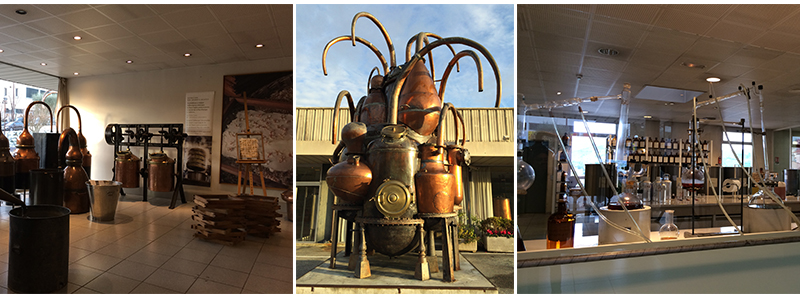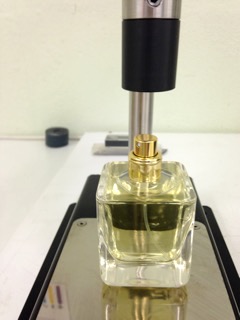Essential oil extraction – Traditional methods with a modern twist August 17, 2015 – Posted in: Essential Oils – Tags: Dipty Patel, essential oil extraction, Essential oils, France, Grasse, HoD Perfumes, HoDPerfumes, Perfume, perfumer
Whilst on my travels to broaden my knowledge on essential oil extraction, I visited all three perfume houses in the Provençal perfume capital of Grasse; Galimard, Fragonard and Molinard. I wanted to get a feel for the process of modern day extraction and see what elements of the traditional methods are still used today.

Enfleurage
Enfleurage is the oldest method of extraction (goes back thousands of years to the days of the pharaohs in Egypt) and rarely used due to how expensive it is. It involves placing the aromatic petals of flowers on a layer of glass individually which is spread with a thin layer of fat called ‘chassis’. The active oil diffuses into the fat (In the 19th century and early parts of the 20th, lard, pork and beef fat were used though now some producers use vegetable fats like palm oil), which is then collected and the oil is extracted from the fat using alcohol. Once this alcohol evaporates it leaves behind the ‘absolute’ therefore only certain flowers go through this process such as Jasmine, Gardenia, Neroli and Rose.
Expression
Expression is a common method used to extract rinds of fruits; it’s a cold method and doesn’t involve any solvents or heat of any kind. Most citrus oils are extracted this way such as bergamot, orange, grapefruit and lemons. These oils aren’t actually essential oils but due to their therapeutic purposes they are.
Steam Distilling
Steam distilling is the most favoured form of extracting essential oil in modern times. Steam is used to burst the oils membrane in the plant and release the oil. The steam carries the oil to a condenser and then re-liquefies the lighter essential oil floats to the top. The oil and water is separated and the water portion is referred to as flower water or the more technical term ‘hydrosol’ or ‘hydrolat’ and the oil is well ‘essential’. The equipment used makes a huge difference in the quality of the oil extracted, copper is highly recommended.
Solvent Extraction
In the perfume world, Solvent Extraction dominates! This method doesn’t technically produce therapeutic grades of oil because chemicals are used in the process. This is the most cost-effective and quickest way of extraction on a large scale. The entire plant is submersed into the solvent to become a thick ‘concrete’ like substance; this is mixed with alcohol, once split, the chemical remain in the oil is used in perfume or aromatherapy but aren’t of therapeutic grade. These are commonly used in bath oils, candles, shampoo etc.
I will be next investigating ways of being more sustainable and organic as I believe the more natural perfume is the better for the environment and you. Stay tuned!
